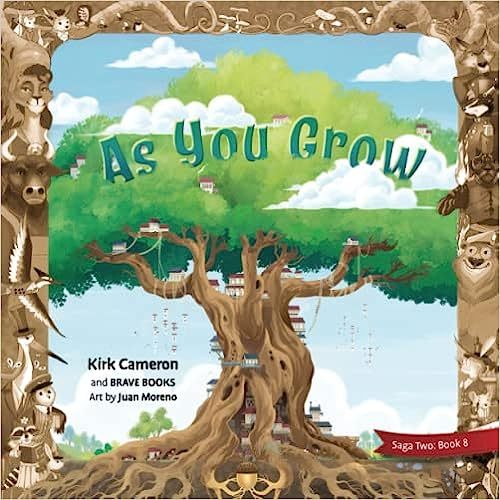#Cultural Expression
Explore tagged Tumblr posts
Text
The Philosophy of Jazz
The philosophy of jazz is a rich and complex topic that encompasses the cultural, social, and musical dimensions of jazz as an art form. Jazz is not only a genre of music but also a way of thinking and being, reflecting values such as spontaneity, creativity, individuality, and community. The philosophy of jazz explores these themes, often connecting them to broader philosophical questions about identity, freedom, expression, and the nature of art.
Key Themes in the Philosophy of Jazz:
Improvisation:
Spontaneity and Creativity: Improvisation is central to jazz, emphasizing the importance of spontaneous creation and the ability to express oneself in the moment. This process challenges traditional notions of composition and performance, highlighting the dynamic interplay between structure and freedom.
Philosophical Reflection: Improvisation in jazz can be seen as a metaphor for life itself, where individuals must navigate unpredictability, make decisions on the fly, and adapt to changing circumstances. It reflects a philosophy that values flexibility, responsiveness, and the capacity to create meaning in real-time.
Freedom and Expression:
Artistic Freedom: Jazz has often been associated with the idea of freedom, both musically and socially. Musicians are encouraged to express their unique voices, experimenting with form, harmony, and rhythm. This freedom of expression is a core philosophical value of jazz.
Social and Political Dimensions: Jazz has historically been a voice for marginalized communities, particularly African Americans. It has been a medium for expressing resistance, resilience, and the struggle for civil rights. The philosophy of jazz, therefore, often intersects with discussions of freedom, equality, and social justice.
Individuality and Community:
Balancing the Individual and the Collective: Jazz is both a highly individualistic and a deeply communal art form. While it celebrates the unique contributions of individual musicians, it also depends on the interaction and collaboration within the ensemble. This balance reflects a philosophy that values both personal expression and collective harmony.
Dialogical Nature: The interplay between musicians in a jazz ensemble can be seen as a form of dialogue, where each musician responds to and builds upon the others' contributions. This dialogical aspect of jazz fosters a sense of community and mutual respect, where each voice is heard and valued.
Innovation and Tradition:
Respect for Tradition: Jazz has a deep respect for its roots and traditions, drawing on blues, gospel, and earlier jazz forms. Musicians often pay homage to past masters while exploring new directions, creating a dialogue between the old and the new.
Philosophy of Progress: At the same time, jazz is characterized by its constant innovation and evolution. The philosophy of jazz embraces change, experimentation, and the breaking of boundaries, reflecting a commitment to progress and the exploration of new possibilities.
The Blues Aesthetic:
Emotional Depth and Authenticity: The blues is foundational to jazz, bringing with it a philosophy that values emotional honesty, resilience, and the ability to find beauty in adversity. The blues aesthetic in jazz emphasizes the expression of deep, often painful emotions, and the transformation of those emotions into something meaningful and uplifting.
Existential Reflection: The blues, and by extension jazz, often grapples with existential themes such as suffering, loss, and the search for meaning. This reflects a philosophy that acknowledges the complexities of the human condition and the power of music to address and transcend those complexities.
Time and Rhythm:
Philosophy of Time: Jazz’s approach to time and rhythm, with its syncopation, swing, and complex rhythmic patterns, reflects a unique philosophy of time. Jazz often plays with the conventional understanding of time, stretching, compressing, and manipulating it in ways that challenge the listener's expectations.
Temporal Experience: This manipulation of time in jazz can be seen as a reflection on the fluidity of time itself, offering insights into how we experience and perceive time. It highlights the possibility of multiple temporalities coexisting, resonating with broader philosophical discussions about the nature of time.
Cultural Identity and Global Influence:
Jazz as a Cultural Expression: Jazz is deeply rooted in the African American experience, and its philosophy often engages with issues of cultural identity, heritage, and the diaspora. Jazz reflects the blending of African, European, and American musical traditions, creating a unique cultural expression that speaks to issues of identity and belonging.
Global Impact: Jazz has become a global phenomenon, influencing and being influenced by musical traditions around the world. The philosophy of jazz includes an appreciation of this cross-cultural exchange, recognizing the music's ability to transcend cultural boundaries and create a shared human experience.
Ethics and Aesthetics:
Moral Dimensions: The philosophy of jazz also includes ethical considerations, particularly regarding authenticity, integrity, and respect for the music and its practitioners. Issues such as cultural appropriation, commercialization, and the role of the artist in society are relevant to philosophical discussions about jazz.
Aesthetic Values: Jazz challenges traditional aesthetic values by embracing dissonance, irregularity, and complexity. It often defies conventional notions of beauty, proposing instead an aesthetic that values the raw, the real, and the unexpected.
Jazz and Existentialism:
Existential Themes: Jazz, particularly in its emphasis on freedom, individuality, and the search for meaning, shares affinities with existentialist philosophy. Both jazz and existentialism explore the human condition, the experience of alienation, and the quest for authenticity in an uncertain world.
Living Authentically: Just as existentialism advocates for living authentically in the face of an absurd or indifferent universe, jazz musicians often strive to find and express their authentic selves through their music, creating meaning through their art.
Jazz as a Way of Life:
Philosophy in Practice: For many musicians and fans, jazz is more than just a genre of music—it is a way of life, embodying a particular attitude toward life that values creativity, spontaneity, and the pursuit of excellence. This philosophy encourages living in the moment, embracing uncertainty, and finding joy in the process of creation.
The philosophy of jazz is multifaceted, touching on themes of freedom, individuality, community, creativity, and cultural identity. It reflects a way of thinking and being that is deeply intertwined with the music itself, offering insights into both the human experience and the nature of artistic expression. Jazz philosophy encourages an open, responsive, and innovative approach to life, celebrating the beauty of improvisation, the richness of diversity, and the power of music to connect, challenge, and inspire.
#philosophy#epistemology#knowledge#learning#education#chatgpt#ontology#Jazz#Improvisation#Artistic Freedom#Individuality#Community in Jazz#Jazz and Identity#Blues Aesthetic#Cultural Expression#Innovation in Jazz#Tradition in Jazz#Rhythm and Time#Jazz and Existentialism#Ethics of Jazz#Aesthetics of Jazz#Jazz Philosophy#Jazz as Dialogue#Cultural Identity#Global Influence of Jazz#Jazz and Social Justice#Authenticity in Jazz#Jazz as a Way of Life
4 notes
·
View notes
Text

Movement of colour.
8 notes
·
View notes
Text
The Power of Street Art: How Murals Can Transform Communities
In our visit with art forms around the world, this is #3 in the series. #1 was Mexican Folk Art, and #2 was Japanese Kintsugi. Please feel free to revisit them or check them out if you missed them. In cities around the world, blank walls and empty spaces are being transformed into vibrant works of art through street art and murals. Far from being a nuisance, this public art form is having…

View On WordPress
#accessible art#art and community development#art for social impact#artistic empowerment#community engagement#community identity through art#community murals#creative placemaking#cultural expression#fostering creativity in urban spaces#graffiti and society#mural art#neighborhood beautification#public art benefits#public space transformation#social change through art#street art impact#urban aesthetics#urban revitalization#visual storytelling
2 notes
·
View notes
Text
Creative Expressions: Unleashing the Power of Imagination and Inspiration
Phasellus vel ante mi. Aliquam sit amet velit tortor. Fusce efficitur diam sit amet mauris consequat, vel vestibulum est gravida. Praesent lacinia velit nec arcu aliquam euismod at at dolor. Vivamus efficitur pellentesque nulla et vestibulum. Praesent at luctus nulla, eget convallis nunc. Mauris a dolor dictum, sagittis elit non, hendrerit felis. In non pharetra risus. Proin tincidunt felis et…

View On WordPress
2 notes
·
View notes
Text
Misunderstanding can unravel even the most well-intentioned community. Let us move with clarity and care. Inspired by Tulsa, Rosewood, and the beauty of Black dolls, this article invites us to protect the digital spaces we hold dear. 💜 #BlackDollsMatter #MelanatedJoy #DollCommunity #RespectMatters
#black dolls matter#community#cultural expression#doll community#inclusivity#melanated joy#moderation#online safety#respect#Rosewood#Tulsa
0 notes
Text
The Power of Call and Response in Art
#African aesthetics#African Cosmology#Ancestral Legacy#Art and Spirituality#Art as Healing#Balance and Harmony#Black Aesthetic#Call and Response#Community and Spirit#Creative Flow#Creativity as Devotion#Cultural Expression#Divine Connection#Double Consciousness#Energy and Art#Energy Work and Art#Faith in Art#God and Creativity#Healing Through Art#higher consciousness#Indigenous Wisdom#Oneness#Polyrhythmic Harmony#Reconnecting to Source#Ritual and Creation#Sacred Creativity#Sacred Practice#soul expression#Spiritual Art#Visual Storytelling
0 notes
Text
UW-Stevens Point to host Black History Month event celebrating art, literature, music
UW-Stevens Point’s Diversity and College Access will host “Celebration of Cultural Expression: Art, Literature and Music” to honor Black History Month from 4 p.m. to 8 p.m. Feb. 20 in the Dreyfus University Center Laird Room and Lounge, 1015 Reserve St., Stevens Point.
STEVENS POINT – A mural artist and business owner will share her experience building communities and promoting healing through art during Black History Month at the University of Wisconsin-Stevens Point. UW-Stevens Point’s Diversity and College Access will host “Celebration of Cultural Expression: Art, Literature and Music” to honor Black History Month from 4 p.m. to 8 p.m. Feb. 20 in the…
#Black History Month#Celebration of Cultural Expression#cultural expression#Martinez White#Tia Richardson#University of Wisconsin-Stevens Point#UW-Stevens Point#UWSP
0 notes
Text
I do sort of wish western anime fans would analyze anime and manga from a framework of japanese historical and cultural context. Specifically a lot of works from the 90s being influenced by the general aimlessness and ennui that a lot of people were experiencing due to the burst in the bubble economy and the national trauma caused by the sarin terrorist attack. I think in interacting with media that’s not local to our sociocultural/sociopolitical sphere it’s easy to forget that it’s influenced and shaped by the same kinds of factors that influence media within our own cultural dome and there ends up being this baseline misalignment of perception between the causative elements of a narrative and viewer interpretation of those elements. It’s a form of death of the author that i think, in some measure, hinders our ability to fully understand/come to terms with creator intent and the full scope of a work’s merits
#exilley's diary#this is about utena btw like. yeah its feminist and a coming of age horror story but also#it was in part ikuhara’s response to the changes he observed in the corporate anime industry and an attempt to subvert those trends#it doesnt really help that i feel certain aspects of the show are filtered through translation and certain cultural emphasises are lost#like for instance. the blood type symbolism. or wakaba’s gestures with making packed lunches#theyre incredibly japanese expressions of conventional gender roles that non-japanese audiences might not fully resonate with
27K notes
·
View notes
Photo

check out my new sticker (via Magnet avec l'œuvre « Mandinka Warrior: Tribute to Sinead O'Connor » de l'artiste Ruging)
#findyourthing#redbubble#sinead oconnor#mandinka#warrior spirit#tribal art#music tribute#empowerment design#cultural expression#bold graphic tee#ethereal beauty#song inspiration#iconic lyrics#music iconography#feminist art#tribal fashion#statement tee
1 note
·
View note
Text
As requested, I have examined my fondness for terrible characters, and I have concluded that I like them because they're terrible and I'm not sorry.
#light yagami#joe goldberg#jack shephard#joshua kiryu#ardyn izunia#james sunderland#arnold rimmer#this entry brought to you because someone recommended YOU to me#so i checked out the wikipedia article#and the 'cultural influence' section was MADDENING#extremely patronising to be so concerned#about all these foolish and misguided women#(not exclusively women#but i do feel i mainly see this 'concern' targeted at women)#expressing fondness for a Bad Person#who is Not Real
13K notes
·
View notes
Text
Creative Expressions: Unleashing the Power of Imagination and Inspiration
Phasellus vel ante mi. Aliquam sit amet velit tortor. Fusce efficitur diam sit amet mauris consequat, vel vestibulum est gravida. Praesent lacinia velit nec arcu aliquam euismod at at dolor. Vivamus efficitur pellentesque nulla et vestibulum. Praesent at luctus nulla, eget convallis nunc. Mauris a dolor dictum, sagittis elit non, hendrerit felis. In non pharetra risus. Proin tincidunt felis et…

View On WordPress
0 notes
Text
The Philosophy of the Blues
The philosophy of the blues encompasses the emotional, cultural, and existential dimensions of this deeply influential musical genre. The blues, originating from the African American experience, particularly in the American South, is not just a musical form but also a profound expression of the human condition. It reflects themes of suffering, resilience, identity, and the search for meaning, often addressing the complexities of life in a way that is both raw and cathartic.
Key Themes in the Philosophy of the Blues:
Suffering and Resilience:
Expression of Pain: The blues is often associated with the expression of deep emotional pain, loss, and hardship. This includes personal experiences of love lost, economic struggle, and social injustice. The music becomes a vehicle for articulating suffering in a way that is both personal and universal.
Resilience Through Expression: Despite its focus on suffering, the blues also embodies resilience. By expressing pain, blues musicians transform it, finding strength and endurance. The act of singing the blues is itself a form of resistance, a way to cope with and rise above adversity.
Authenticity and Truth:
Realness and Honesty: The blues is often celebrated for its authenticity, with musicians valuing raw, unfiltered expression over polished perfection. This commitment to truth-telling, even when it reveals uncomfortable realities, is central to the blues philosophy.
Life as It Is: The blues doesn’t shy away from the darker aspects of life. Instead, it confronts them head-on, acknowledging that pain, loss, and struggle are intrinsic to the human experience. This acknowledgment of life's harsh realities is a key aspect of the blues' philosophical outlook.
Identity and Culture:
African American Experience: The blues is deeply rooted in the African American experience, particularly in the context of slavery, segregation, and systemic racism. It reflects a unique cultural identity that is marked by both suffering and a profound sense of community and spiritual resilience.
Cultural Expression: The blues serves as a cultural expression that communicates the history, struggles, and hopes of African Americans. It is a way of preserving and transmitting cultural memory, offering a sense of continuity and connection to the past.
Existential Themes:
Confronting Absurdity: The blues often grapples with existential themes, such as the search for meaning in an often indifferent or hostile world. The music reflects a recognition of life's absurdities and the complexities of human existence, where joy and sorrow, hope and despair, coexist.
Living with Uncertainty: The blues acknowledges the unpredictability of life and the inevitability of suffering, yet it also embraces the resilience needed to face these challenges. This acceptance of uncertainty and the transient nature of life is a core aspect of the blues' existential philosophy.
Emotion and Catharsis:
Emotional Depth: The blues is known for its emotional intensity, often evoking feelings of melancholy, longing, and heartache. Through the music, these emotions are not only expressed but also shared with others, creating a sense of empathy and collective experience.
Cathartic Release: Playing or listening to the blues can provide a cathartic release, allowing individuals to process and make sense of their emotions. The blues offers a way to confront and release inner turmoil, leading to a sense of emotional healing or relief.
The Blues as a Form of Communication:
Storytelling: The blues often tells stories of personal and communal experiences, conveying messages about life, love, loss, and social conditions. These stories are a way of communicating lived realities and shared experiences, often with a moral or lesson embedded in them.
Call and Response: The blues frequently employs a call-and-response structure, reflecting its roots in African musical traditions. This form of communication emphasizes interaction and dialogue, both between the musician and the audience and among the musicians themselves.
Freedom and Constraint:
Musical Structure: The blues often follows a specific musical structure, such as the 12-bar blues, which provides a framework within which musicians can express themselves. This balance between freedom and constraint reflects a broader philosophical tension between structure and improvisation in life.
Freedom of Expression: Within the constraints of the blues form, there is immense freedom for individual expression. Musicians are encouraged to infuse their performances with personal emotion, style, and creativity, highlighting the importance of finding one’s voice within established boundaries.
The Blues and Spirituality:
Secular and Sacred: While often seen as secular music, the blues has deep spiritual undercurrents. It shares themes with African American spirituals, such as the longing for deliverance and the expression of faith in the face of suffering. The blues can be seen as a secular form of seeking solace and meaning.
Soulful Expression: The term "soul" is often associated with the blues, referring to the music's ability to express deep, soulful emotions. The blues connects the physical and the spiritual, offering a form of expression that speaks to both the body and the soul.
Cultural Influence and Legacy:
Foundation of Modern Music: The blues is a foundational genre that has influenced a wide range of musical styles, including jazz, rock, and hip-hop. Its philosophical themes and musical elements have permeated popular culture, shaping the way emotions and stories are expressed in music.
Continuing Relevance: The philosophy of the blues remains relevant today, as it continues to resonate with people facing modern struggles and injustices. The blues’ emphasis on authenticity, resilience, and emotional expression continues to inspire artists and audiences alike.
The Blues as a Philosophy of Life:
Embracing Complexity: The blues teaches that life is complex, filled with both sorrow and joy. It encourages an acceptance of this complexity and the ability to find meaning and beauty even in difficult circumstances.
Living with Grace: The blues embodies a philosophy of living with grace under pressure, maintaining dignity and humanity in the face of life's challenges. It reflects a worldview that values perseverance, expression, and the transformative power of music.
The philosophy of the blues is a deep reflection on the human condition, rooted in the experiences of suffering, resilience, and cultural identity. It offers a unique lens through which to understand life's challenges, emphasizing authenticity, emotional expression, and the power of music to heal and connect. The blues is not just a genre of music; it is a way of seeing and experiencing the world, one that values truth, resilience, and the ability to find beauty in the midst of adversity.
#philosophy#epistemology#knowledge#learning#education#chatgpt#ontology#Blues#Suffering and Resilience#Authenticity#Cultural Expression#Existential Themes#Emotional Depth#Catharsis#Storytelling#Call and Response#Freedom and Constraint#Spirituality in Blues#Influence on Modern Music#Blues as Philosophy#Identity and Culture#Blues Aesthetic#Musical Structure#Blues and Social Justice#Emotional Expression#Transformation Through Music#Blues Legacy
0 notes
Video
youtube
#indigenous namêwi-sâkahikanihk
1 note
·
View note
Text
Canceled & Trending as a Result
As You Grow (Freedom Island) by Kirk Cameron (Author), Juan Moreno (Illustrator) #1 Best Seller Can’t We All Grow? In light of a new children’s book “As You Grow (Freedom Island)” that portrays family, faith, and biblical wisdom, Kirk Cameron, an actor, writer, and producer, has encountered challenges in reaching numerous American children and families through the public library system. It’s…

View On WordPress
#Accountability#Artistic Expression#Challenging Norms#Cultural Expression#Democracy#Dignity#Human Rights#Innovation#Personal Growth#Progress#Tolerance#Understanding#kirk cameron#As you grow#goodreads
0 notes
Text
Streetwear culture has emerged as a dominant force in the fashion industry, with its roots tracing back to the streets and subcultures that have influenced urban style for decades.
0 notes